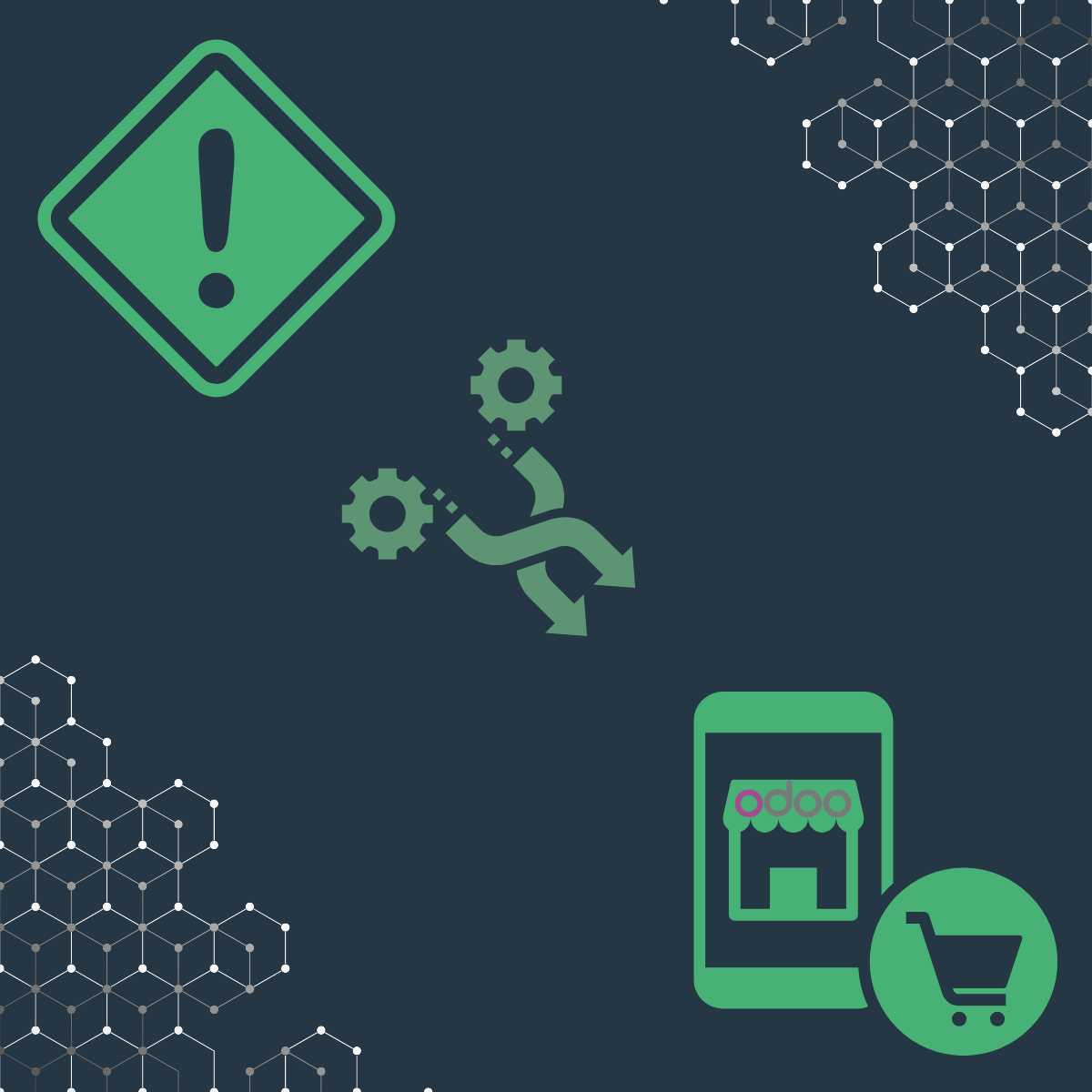Do you know your processing costs per order? How about your gross margins? Or, your stock turnover rate? These key performance indicators (KPI) provide critical insights into your retail operations. Processing cost per order, for instance, tells you what it costs to get your orders out of the door. If it costs more to get them out than the revenues they’re bringing in, changed need to be made.
If your retail ERP software approach isn’t providing accurate real-time data on your critical KPIs, you’re putting your company at risk. Updating to a retail ERP software solution, like Odoo, which features an integrated, evidence-based approach to ERP, reduces risk dramatically.
The right retail ERP software generates benefits that a manual or non-integrated ERP solution can’t provide: productivity, increased efficiency, reduced costs, and enhanced customer satisfaction. Benefits that make a significant difference for a retailer and manager.
Signs You Should Update Your Retail ERP Software
Choosing when to update your ERP software isn’t easy. There’s a lot riding on the decision, so you need to get it right. Below are five telltale signs you need to update your ERP software:
1. Updates on critical business activities are lacking
Businesses can’t depend on small teams to maintain business documents and records to survive anymore. This method is time-consuming, cumbersome, and costly. What you need are real-time updates to hold off the competition. If you’re not getting timely updates on business activities, your ERP software isn’t doing its job.
2. Existing ERP modules are failing to communicate
Today’s ERP systems often have individual modules executing tasks related to billing, inventory management, accounting, and so on. These modules need to communicate seamlessly. Doing so enables you to coordinate business activities and meet deadlines quickly and efficiently. If your ERP software modules or apps aren’t talking to each other, it’s a sure sign your need to update your system.
3. Managing bills and prices is cumbersome
Managing billing and pricing is challenging—no matter the company’s size or marketplace. This critical task gets even more challenging if you don’t have timely and accurate information. Without it, it’s hard to make key decisions based on past data and competitors’ pricing. Plus, you’re not getting notified about bills to be received and paid, which can be costly.
4. Poor mobile accessibility to ERP system
Remote working is the new normal—thanks to the pandemic. Remote workers need access to your ERP system 24/7 to get things done quickly and efficiently; as do salespeople meeting with clients off-site or technical people on the road working remotely.
5. Failure to analyze business needs
Managers must plan actionable strategies for your business to survive. They can’t do that if they’re clueless about flaws or weaknesses in your previous strategies. Without this information, your people will make the same mistakes as before. Additionally, they won’t be able to trace business needs and create roadmaps to meet them.
If you’re experiencing some or all of these signs, you need to update your retail ERP software now. Doing that can not only streamline and automate processes. It can also help you better manage your business and free-up staff to work on more critical activities such as customer service.
Choosing Odoo As your Retail ERP Software
More and more companies are choosing Odoo as their retail ERP software solution. Open-source, cloud-based, and scalable, Odoo is among the most popular ERP solutions out there, with more than 4,000,000 users worldwide. Odoo offers an expansive feature set, is highly flexible, scalable, and reliable, and is easily tailored to a company’s individual needs.
Below are seven critical features Odoo offers:
- Easy to use and setup
- Comprehensive modular design
- Offers powerful communication tools
- Has an integrated front-end and back-end
- Provides exceptional mobile support
- Uses Industry Standard Libraries
- Back-end database is open source
Changing Your Approach to Retail ERP Software
The pandemic has forced today’s retailers to rethink how they use ERP. A manual or non-integrated approach won’t work anymore if you’re a retailer. You need a retail ERP software solution that can keep you abreast of what’s happening in your businesses in real-time—a solution that can track critical KPIs, and allow implementation of a crucial omnichannel experience.
If you’re experiencing any of the signs described above, you need to migrate to an integrated ERP software solution, like Odoo. This approach to ERP is proven and effective. Why else would so many companies be doing it? Worldwide, the ERP applications market is expected to reach $97.1 billion by 2024, compared with $94 billion in 2019.
Integrated retail ERP software provides powerful features that can boost competitiveness and drive profitability, like its ecommerce development services, which can create new revenue stream for your company and help boost customer satisfaction. So, the question you should be asking isn’t should we update our ERP approach, but how quickly can we do it.
For more information on our capabilities or to schedule a free two-hour assessment session, contact us here. Put our experience and know-how to work for you.
